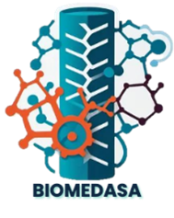What is this project all about?
BIOMEDASA is a new initiative working to make data science in biomedical research more inclusive, accessible, and impactful.
At the moment, data science as a field is not very diverse. Fewer than 1 in 4 professionals in the field are women, and several ethnic groups - particularly Black, African, Caribbean, and Black British communities - are significantly underrepresented. At the same time, biomedical research often focuses heavily on collecting data but doesn’t always invest enough in analysing this data. That means missed opportunities for insights, discoveries, and real-world impact.
We believe diverse, well-supported teams are the key to unlocking better, smarter biomedical science, and that a cultural shift needs to happen. That’s where BIOMEDASA comes in.
Funded by the Medical Research Council (MRC), this two-year project (January 2025 – January 2027) is designed to build a stronger, more diverse community of data science talent in biomedical research.
What are the main parts of the project?
In short, the BIOMEDASA project focuses on five project pillars:
- Enhance: We’ll embed Research Training Professionals (RTPs) into NHS clinical teams, helping bridge the gap between data and care.
- Nurture: We’re creating short, accessible training sessions and events, in order to help people with little or no background in data science gain practical skills and confidence.
- Analyse: By reviewing Biomedical data science MSc programmes across the UK, we’ll investigate both barriers and opportunities in accessing further education.
- Reskill: For those seeking to switch carers and retrain in data science, we’ll offer mentorship opportunities and training bursaries, to better help retrain them.
- Inspire: We’ll promote data science careers to secondary school students, though hands-on and interactive programming workshops, involving LEGO robots and micro:bits.

Back to: Computational Biology Facility
